Fears Grow For Imminent Execution Of Three Iranian Arab Prisoners
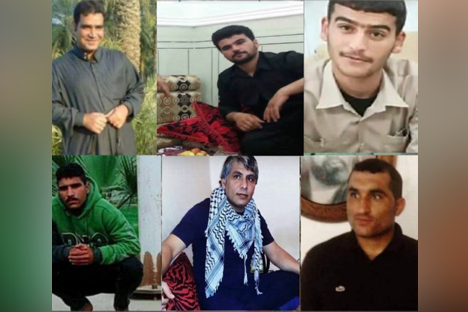
Three Iranian Arab prisoners who were sentenced to death have been moved to an unknown location, prompting fears that their execution is imminent.

Three Iranian Arab prisoners who were sentenced to death have been moved to an unknown location, prompting fears that their execution is imminent.
Ali Majdam, Mohammad-Reza Moqaddam and Moin Khanfari have been transferred from Shiban prison in the southern city of Ahvaz to an unknown place, according to one prisoner’s family.
Concern that they are soon to be executed without their families having been informed is now growing following the reports of their relocation.
There are also fears about the fate of Habib Darees, Adnan Ghobeishavi and Salem Mousavi, three other Arab prisoners who have been sentenced to death.
In February, the Ahvaz Revolutionary Court sentenced the six prisoners to death on charges of "transferring currency and remittances through a foreign bank, armed attacks, and being associated with a political movement."
A Twitter campaign in support of the Arab political prisoners will be launched on Sunday promoting the hashtag "no to death".
This comes as the execution of Iranian-Swedish political activist Habib Asyud on Saturday has drawn widespread international condemnation.
Asyud, former leader of the Arab Struggle Movement for the Liberation of Ahwaz (ASMLA), had been convicted of leading an Arab separatist group accused of attacks including one on a military parade in 2018 that killed 25 people.
He was sentenced to death for being "corrupt on earth", a capital offence under Iran's strict Islamic laws.
Asyud, 49, was put on trial by a revolutionary court in Tehran in December. He was not allowed to choose his own defense attorney and was represented in his trial by a court-appointed lawyer. He was also forced under duress to make self-incriminating confessions.
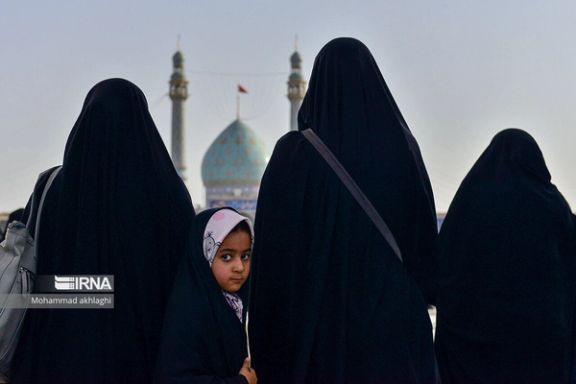
Conservative commentator Mohammad Mohajeri says supporters of the "Islamic Government" theory in Iran want to minimize elections and boost religious rule.
While the Islamic Republic is theoretically based on some democratic processes such as holding elections and giving the nation a voice in the parliament, the supporters of true ‘Islamic Government,’ a more radical theory, do not recognize the role of the parliament and do not believe in people's vote.
Mohajeri told the Iranian Labor News Agency (ILNA): "Those who believe in an Islamic Government do not clearly say that they do not value the people's vote because they know if the say so, the people will tear them apart."
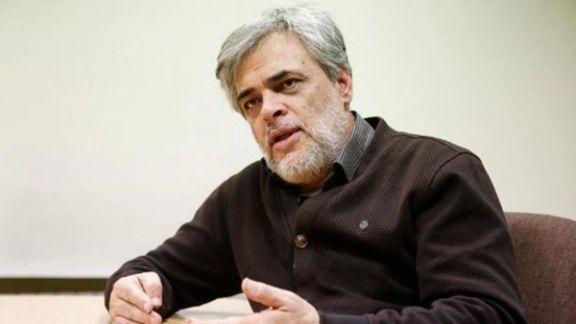
Despite Mohajeri's statement, the main advocate of the Islamic Government theory, Ayatollah Mohammad Taqi Mesbah Yazdi has said many times that the people's vote is useless as the Supreme Leader is appointed by God Almighty and even his aides are appointed by God rather than being elected by the people.
According to Mohajeri, some allege that the founder of the Islamic Republic, Ayatollah Ruhollah Khomeini, also believed in full Islamic Government and the reason why he supported the idea of establishing an Islamic Republic was to prevent criticism from the international community.
Mohajeri added: "Although the advocates of Islamic Government refrain from openly expressing their opposition to elections, they take measures that undermine the people's vote." He explained: "They do this by changing the political situation in a way to ensure minimal turnouts in elections, so that they can further their own ideas."
Mohajeri's statement alludes to what happened in the latest parliamentary election in 2020 and the presidential election of 2021, when mostly hardliners were allowed to run. This brought an inefficient parliament and president to power, so that Supreme Leader Ali Khamenei can now dictate whatever he wants to them.
On the other hand, many key decisions about the affairs of the state are handed over to the heads of the three powers of the government, such as the decision to dramatically increase the price of fuel in 2019, and the decision about accepting the terms of the international financial watchdog, the FATF, that was handed over to the Expediency Council. The former case led to one of the biggest and bloodiest protests in Iran and the latter has left Iran's foreign trade in a state of limbo for several years now.
Even some of the decisions that are apparently made by the parliament, like the decision on the budget bill for 1400 (two years ago) were finalized according to Khamenei’s taste, by the president, speaker of parliament and the head of the judiciary.
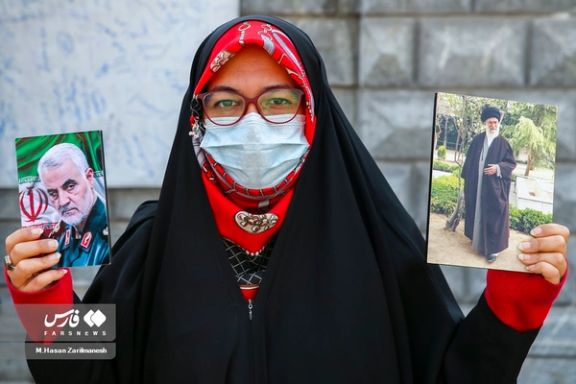
Mohajeri's comments followed a statement by former President Mohammad Khatami who said recently that some Iranian politicians have turned to the idea of an Islamic Government rather than the Islamic Republic. Khatami however argued that what Khomeini had in mind was not the rule of clerics.
Asked to clearly name the advocates of the totalitarian Islamic Government, Mohajeri said: "A small part of radical conservatives believe in this idea," but refrained from naming any individual or group. Referring once again to the results of the latest elections in Iran, he said: "Naturally, when a majority of the people do not take part in the election, the political atmosphere will be controlled by the radicals."
With these explanations, the statement by reformist figure Mohsen Mirdamadi makes better sense. According to Rouydad24, Mirdamadi said: "Boycotting the election is not the favorite choice of political parties. But sometimes it is the only option on the table." He added: "When the reformists see that they cannot further any one of their plans by taking part in elections, they find out that their presence in the election can only lead to a decline in their social capital."
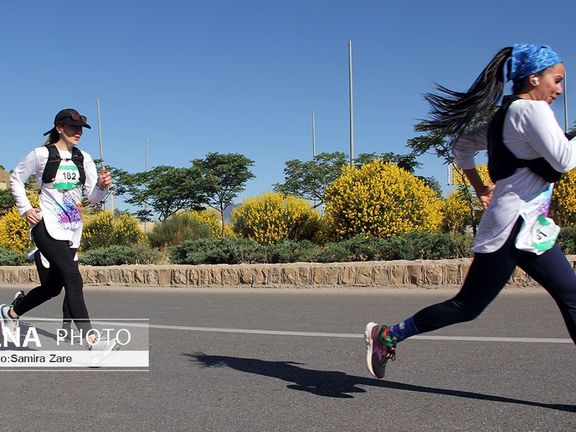
Iranian authorities have summoned the organisers of a marathon race in Shiraz after a number of women ran without hijab.
The Judiciary of Iran’s Fars Province has filed a case after the marathon race was held on Friday in the central streets of the city of Shiraz.
Mustafa Bahraini, Prosecutor General of the southern province said on Saturday that after this "deconstructive" action, the director and organizers have been summoned to provide an explanation.
Some women spectators in the street also defied the edit to wear hijab.
Since the death last September of 22-year-old Mahsa Amini in the custody of morality police and the protests that engulfed the country for months, many women have discarded their headscarves altogether and vowed never to wear it again.
The Islamic Republic is now facing the phenomenon of "hijablessness" as a form of civil disobedience.
Only five months after the Islamic Revolution of 1979, then leader of Iran Ayatollah Ruhollah Khomeini banned women from appearing without a veil in government offices. The ban gradually spread to the entire society within the next two years.
Iran's women eventually gave into covering their hair, even if partially, with headscarves and shawls and wearing tunics and trousers that could be tight-fitting and/or colorful. The hardline religious and political establishment considered this level of compliance faulty and called these women "bad-hijab".
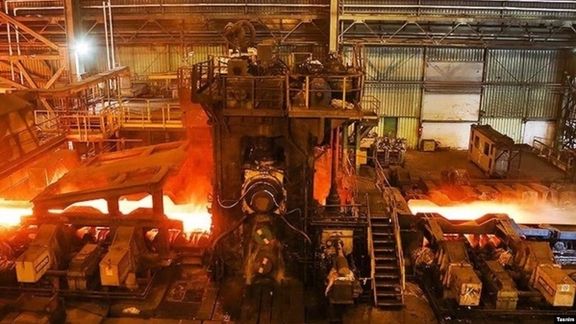
While the Islamic Republic has sought to become the seventh steel producer in the world, data shows that it is struggling to keep its spot among the top ten.
According to reports by industry sources, the steel production in Iran plummeted because the regime faces a severe shortage of electricity and gas, both vital for running the plants.
Iran Chamber of Commerce, Industries, Mines and Agriculture says the power outage in the Iranian year 1400 – ending March 2022 – led to a loss of seven to eight billion dollars in non-oil exports.
Some among industry experts say that loss of this magnitude, while oil exports have been reduced by US sanctions, led to shortage of foreign currencies in Iran, which contributed to its sharp decline since September.
Iran's rial has fallen from 260,00 to the US dollar last August to 540,000 as of this week.
Ahmad Mahdavi Abhari says that 45% of Iran’s non-oil exports is related to petrochemicals, saying that "Urea and methanol exports decreased by 2.5 million tons due to the gas cuts, meaning that it cost$700 million in exports.”
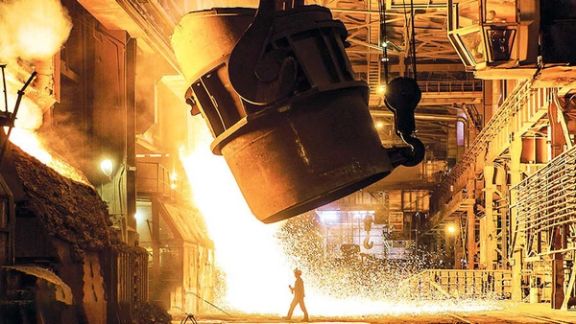
Zakaria Nayebi, a businessman active in the steel industry, says the production of steel ingot and direct reduced iron decreased for three months due to the shortages of electricity and gas.
While the Islamic Republic officials predicted a bad winter in Europe, offices and schools in Iran were closed for days in winter due to a serious natural gas shortage.
Iran has failed to invest in its gas production sector, although it has the world’s second largest reserves. The distribution network also needs upgrades as more than 25 percent of the gas is lost during transfer.
Earlier this year, an Iranian industrialist said the gas and electricity shortage would probably lead to a two-million-ton decrease in steel production. Reza Shahrestani said there is a severe gas shortage for industries, adding that the steel industry needs 40 million cubic meters of gas daily, but at present their consumption has reached 15 million cubic meters per day, adding that almost 50% of the electricity supply for industries has been cut off too.
“Gas shortage has also led to electricity shortage because the current amount of natural gas does not meet the needs of power plants to produce electricity,” he underlined. “It seems that the gas and electricity shortage will be more severe next year and if it continues like this. It will have a tangible impact on the production rate of all industries,” he added.
The World Steel Association, in its march report, removed Iran from the list of the 10 largest steel producers in the world, and Italy was replaced by Iran. Iran has always been among the top 10 largest steel producer in the world, and in the first two months of 2023, Iran was the ninth largest steel producer above Turkey.
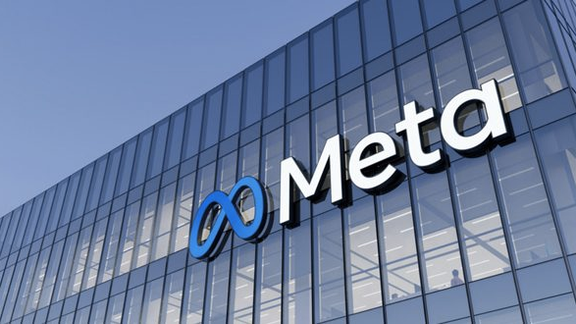
Meta says it has removed 40 Facebook accounts, eight pages and one group affiliated with Iran for violating its policy against coordinated inauthentic behavior.
The tech giant said these accounts and pages were mainly aimed at Israel, France, and Bahrain.
In its first quarterly adversarial threat report in 2023, Meta said this operation ran across multiple internet services—including Facebook, Twitter, Telegram, YouTube, and hacking forums—where it claimed to have hacked entities in the countries they targeted, including news media, logistics and transport companies, educational institutions, an airport, a dating service, and a government institution.
“The individuals behind this network alleged to have stolen these organizations’ data or defaced their websites. We cannot confirm if any of the claimed attacks against these entities have, in fact, occurred. We removed this network before it was able to gain a following among authentic communities on our platforms.”
It further added that multiple distinct clusters posed as separate hacktivist teams, with each only active for a few days to a few weeks.
Accordingly, three separate clusters focused on Israel, where they offered to sell hacked data that allegedly belonged to commercial companies, educational institutions, and a dating app. Another cluster that targeted Bahrain claimed to have hacked government websites before the country's elections.
“It was removed last year by both automation and our investigative team. The final cluster focused on France and claimed to have hacked the Charlie Hebdo newspaper. The news media reported some of these individual claims in Israel, Bahrain, and France,” underlined Meta.
The people behind this network used fake accounts to post, like and share their own content to make it appear more popular than it was, as well as to manage pages and groups posing as hacktivist teams.
They also liked and shared other people’s posts about cybersecurity topics, likely to make fake accounts look more credible.
Some of these accounts used profile photos likely generated using machine learning techniques like generative adversarial networks. Meta says it found the full scope of this activity after reviewing information shared with the company by its peers at Microsoft.
Based on the report, around 750 accounts followed one or more of these pages; around 80 accounts joined one or more of these groups.
Last year, the US Congress said it was investigating the Meta social media network to find out why the platform is censoring content by Iranian dissidents and pro-democracy advocates.
Following reports that the social media giant might be aiding the Iranian government amid a wave of protests, three Republican lawmakers on the House Foreign Affairs and Armed Services Committees have launched a probe into the matter, a copy of which was published by the Washington Free Beacon on Tuesday.
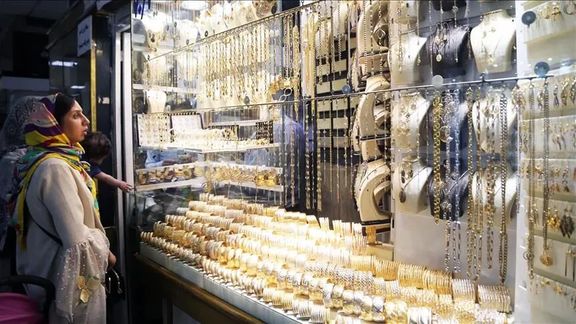
The World Gold Council announced a major jump in the purchase of gold coins and bars by Iranian citizens in the first quarter of 2023.
According to the council, Iran saw bar and coin investment of 13 tons in the first three months of 2023 – which means a 26% increase compared to the 10 tons five-year quarterly average.
“Investment was spurred by a weak domestic currency, which fed through to soaring local gold prices, and extreme inflation,” added the World Gold Council in its report on Friday.
Disruption to the supply of gold coins has also pushed premiums up.
However, higher prices dampened demand for jewelry in the country. The council says Iran saw 15% less demand for jewelry than last year, with gold price rises magnified by local currency depreciation against the dollar.
Iran's rial has halved in value since August 2022, fueling inflation, which has surpassed a 50-percent annual rate. Experts say the country will go into hyperinflation in the coming months as the weak currency pushed prices higher.
Hyperinflation is a very high and typically accelerating inflation, which quickly erodes the value of the local currency -- rial in this case -- while the prices of all goods increase exponentially. In such a situation, people move to minimize their holdings in the national currency and switch to more stable assets like gold coins and bars.
The Central Bank of Iran announced late in March that the annual inflation rate stands at 46.5 percent. Although the official inflation rate is usually less than what actual prices reflect, even a 46.5-percent inflation is among the highest in Iran in more than 30 years.